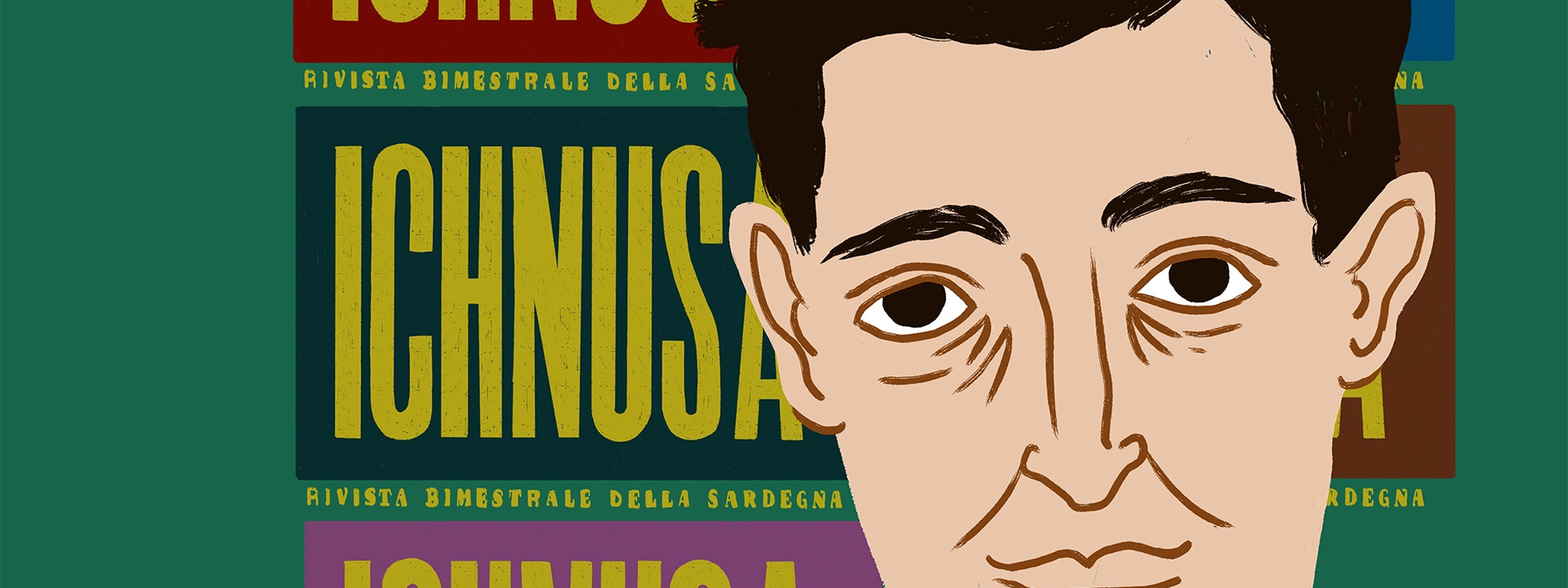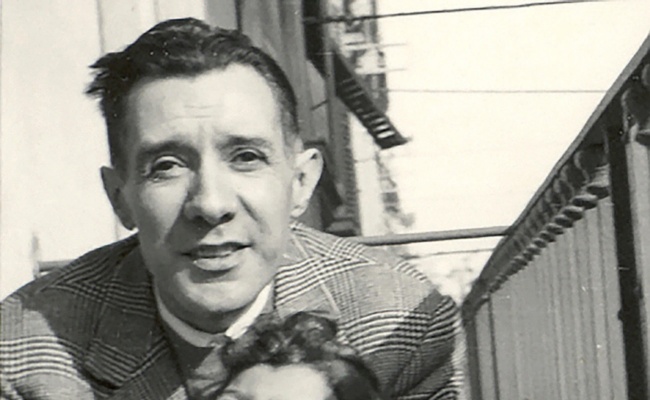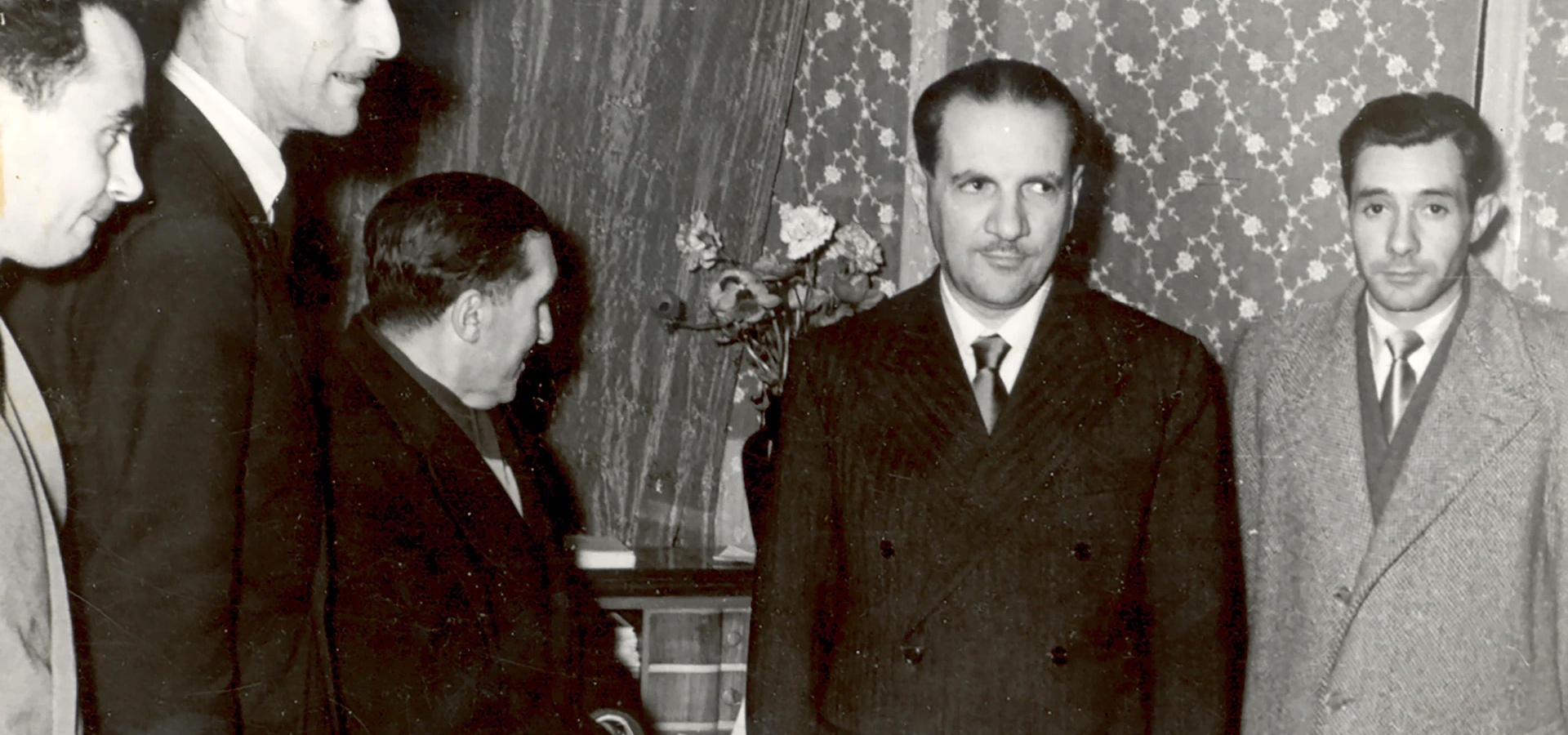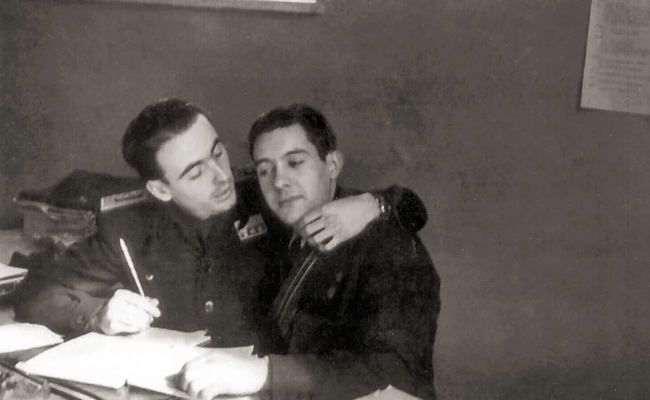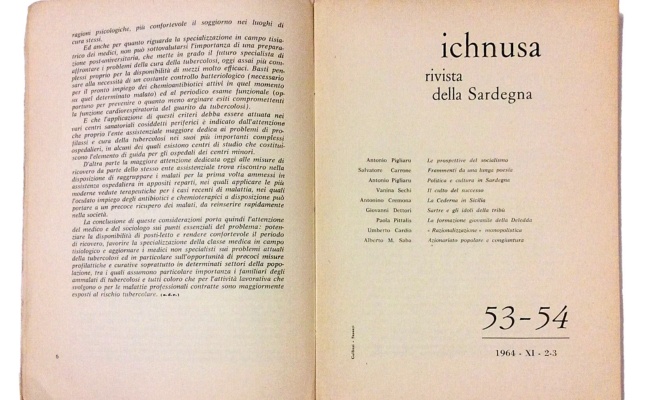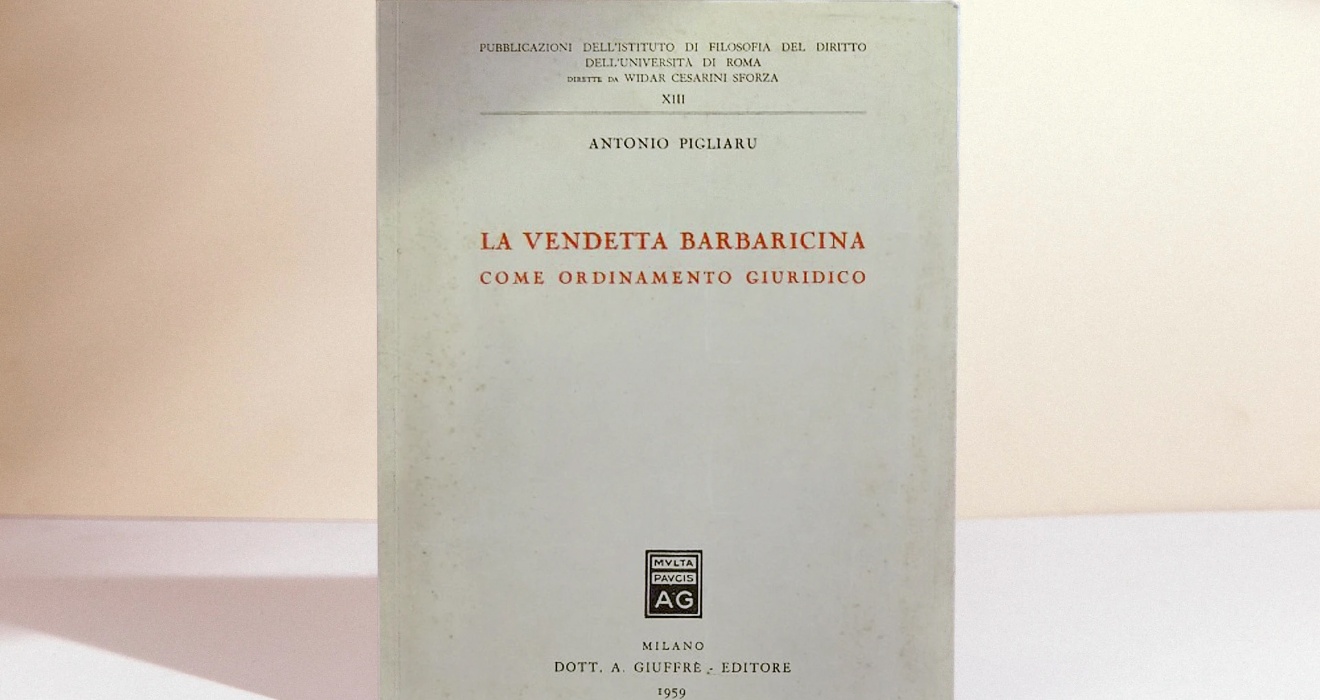Antonio Pigliaru (b. 17 August 1922, Orune–d. 27 March 1969, Sassari) was an Italian jurist, philosopher and educator.
Antonio Pigliaru
Description
Having lost his father at a young age, he moved to Sassari to continue middle school and earn his secondary-school certificate.
In 1941, he enrolled in the faculty of literature and philosophy at the University of Cagliari and joined the Gruppo Universitario Fascista (Fascist University Group), in which he had his first cultural experiences, working on the organisation’s newspaper.
After the fall of fascism and the constitution of the Italian Social Republic, Pigliaru chose to remain loyal to the former and was arrested on 24 May 1944, accused of very serious crimes: attack on the integrity, independence and unity of the State, aiding and abetting war, espionage and political conspiracy. He was released from prison in 1946, under the Togliatti amnesty.
He resumed his studies and completed his degree in 1947 with a thesis on existentialism in Leopardi.
In 1949, he was a research and teaching assistant in Philosophy of Law at the University of Sassari, earning his university teaching certification in 1954 and becoming full professor of Theory of State in 1967.
He wrote numerous texts that are still considered fundamental for the debate on Sardinian culture, including La vendetta barbaricina come ordinamento giuridico (Milan 1959), which tackles the theme of the Barbagia vendetta as a system independent and distinct from that of the State.
He died prematurely in Sassari on 27 March 1969.
 Nuorese Cultural District
Nuorese Cultural District